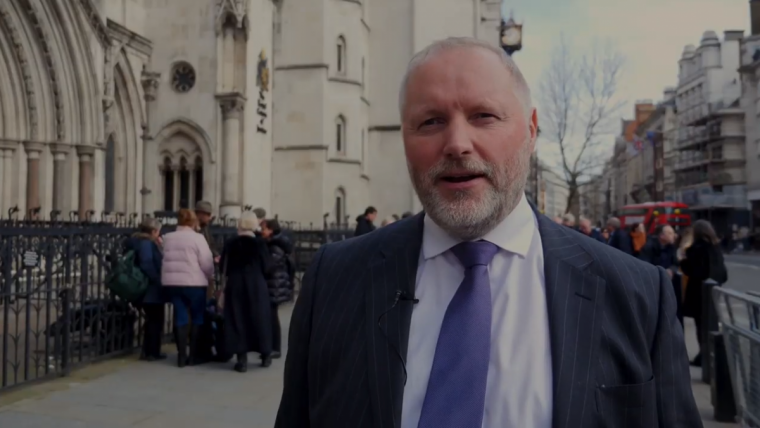A marginal victory for free speech - the case of Harry Miller

The case of Harry Miller is important and may have implications for other incidents involving free speech, but it is a marginal victory at best.
Miller was visited by Police last year after complaints about tweets on the subject of transgenderism. Miller claims a police officer said he needed to "check his thinking" in language reminiscent of George Orwell's classic 1984.
Miller is not the first to fall foul of the trans lobby, with Maya Forstater receiving support from JK Rowling after she was sacked for stating that biological sex was real. Franklin Graham also recently felt the effect of the growing trend in 'cancel culture' and 'no platforming' to limit free speech.
Harry Miller, who is a former police officer himself, had tweeted numerous times on transgenderism, including retweeting a limerick which questioned whether transgender women are biological women. He was told by police that his tweets would be recorded as a 'non-crime hate incident' and that any escalation would result in prosecution. The Assistant Chief Constable described Miller's tweets as 'transphobic' and also warned of escalation.
Miller took Humberside Police to court over their conduct along with the College of Policing, whose guidelines the force were following. A judge has today ruled in favour of Miller, but only on the facts of the case. It is important not to miss this - it is a victory, but on narrow grounds that will be difficult to repeat. The policy of recording 'non-crime hate incidents' still stands.
The judgment opens with a quote from Animal Farm: "If liberty means anything at all, it means the right to tell people what they do not want to hear." The fact that this needs to be stated, is a reminder of the changing nature of our society.
The judge ruled that Mr Miller's tweets on various aspects of the transgender debate were lawful. However, he also ruled that the College of Policing guidelines allowing them to record tweets as a 'non-crime hate incident' were also lawful under both domestic and European law. The judge felt the Police had a legitimate aim in recording hate incidents that weren't crimes and that the impact on people like Mr Miller was outweighed by the need to protect minority groups.
The main problem is with the subjectivity of the guidelines. A 'non-crime hate incident' involves the perception of "the victim or any other person, that the incident was motivated by a hostility or prejudice against a person who is transgender or perceived to be transgender." In Miller's case, one person from London complained to Humberside Police that Miller's workplace was an 'unsafe environment' for transgender employees because of his comments on social media.
Miller won because the police got carried away - visiting his place of work, telling him to stop tweeting on the subject, threatening to escalate the matter and publicly calling him a transphobe.
As the judge commented, "The effect of the police turning up at his place of work because of his political opinions must not be underestimated. To do so would be to undervalue a cardinal democratic freedom. In this country we have never had a Cheka, a Gestapo or a Stasi. We have never lived in an Orwellian society."
Police conduct made it easy for the judge to rule in Miller's favour. But 'non-crime hate incidents' remain. Someone can perceive your motivation and though you haven't committed a crime, it can be recorded against you. Miller has been given leave to appeal to the Supreme Court to challenge the guidelines. That ruling will be important as comments from the College of Policing in response to this judgment show they still don't get the issue.
Freedom of speech is not about protecting ideas we agree with. Graham Linehan, the creator of Father Ted and the IT Crowd, has also found himself caught up in trans debate. Whilst I largely agree with Linehan on trans, I disagree profoundly with him on abortion and the redefinition of marriage, but I support his right to express his view.
In the end, these discussions are about more than free speech. They are about justice, equality and truth. Freedom is a justice issue, rooted in the nature of God and a fundamental part of what it means to be human. Equality means that we must allow men and women to speak about what it is to be male and female - much of the current debate sees those born male trying to shut down those born female. And finally truth, the freedom to speak truth - to make absolute truth claims, creational, moral and gospel truth claims - in the public square.
These cases may appear tangential, but they are forming the future fabric of the society we will all inhabit.
Peter Lynas is UK director of the Evangelical Alliance and a former barrister.











